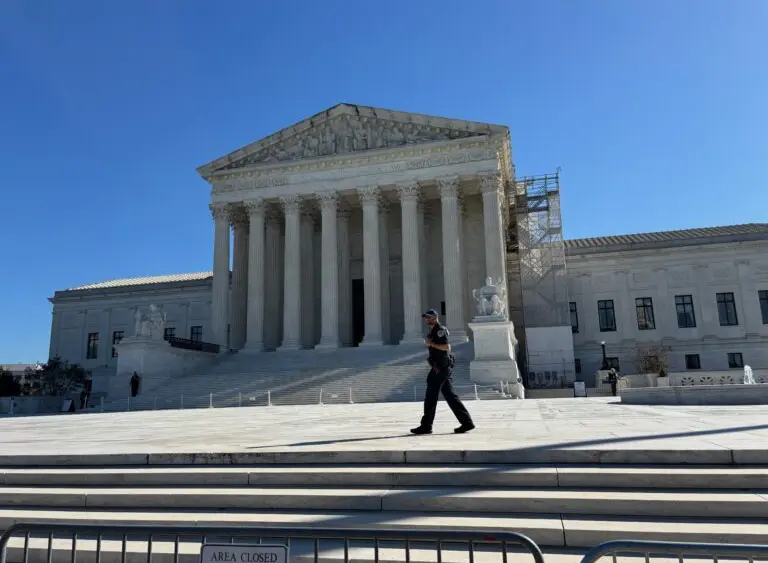WASHINGTON, D.C. – With millions of Americans’ health insurance premiums projected to rise in 2026, due partially to enhanced Obamacare subsidies expiring, Republicans are eyeing health savings accounts as a solution.
“Both sides agree the cost of health care is too high. But sending billions of dollars to insurance companies while premiums continue to rise and the deficit continues to grow is not a solution,” Sen. Mike Crapo, R-Idaho, Chairman of the Senate Finance Committee, said in a Wednesday hearing.
Crapo reiterated the general view of Republicans that renewing the enhanced Obamacare Premium Tax Credits, which are set to revert to original pre-pandemic levels on Dec. 31, will do nothing to address rising health care costs.
The taxpayer-funded PTC – established under the Affordable Care Act and temporarily expanded during the COVID-19 pandemic – is a subsidy that goes directly to health insurance companies, which use it to lower ACA marketplace enrollees’ monthly premiums.
Republicans argue the subsidies benefit insurers over patients, and that the expansion of the PTC led to increased fraud and inflated premiums.
President of Paragon Health Institute Brian Blase, whom Republicans called in as a witness, called the subsidies “ill-designed and inflationary.”
“More subsidies lock in a high-cost system and permit large insurers and hospital systems to remain inefficient,” Blase told lawmakers. “When enrollees pay only a small slice of the premium, or no premium at all, insurers face almost no price discipline. Insurers can raise premiums knowing that taxpayers will absorb almost all of the increase.”
He said the very structure of the subsidies – particularly with the COVID-19 additions that included 100% coverage of some enrollees’ monthly premiums and lifted the subsidy cap at four times the Federal Poverty Level – incentivize misreporting and fraud.
The Paragon Institute estimates that the number of ineligible enrollees in fully subsidized health insurance plans rose from an estimated 5 million to 6.4 million from 2024 to 2025, likely costing taxpayers $27 billion in 2025 alone.
“Extending temporary emergency subsidies would deepen a broken system instead of fixing it,” Blase said. “The enhanced subsidies have supercharged fraud, benefitted insurers more than patients, and increased taxpayer exposure.”
Instead of extending the enhanced PTC, Congress should expand health savings accounts (HSA) and allow for more flexible options by relaxing deductible thresholds, he said.
Sen. Bill Cassidy, R-La., has pushed for lawmakers to explore replacing the PTC credits, which go directly to insurers, with HSAs or flexible savings accounts (FSA) that would give the money directly to patients.
He pointed out that under ACA’s medical loss ratio, insurance companies are allowed to use up to 20% of the subsidies for overhead expenses and profit, rather than towards direct medical care.
“Under the status quo that my colleagues are pushing, 20% is going to the insurance company for overhead and for profit – 80% for the health care that the insurance company believes that the patient needs,” Cassidy, a physician, said. “And under what we’re proposing, is that 100% of this goes to a patient-driven account – which she can use for a physician or dentist or drugs – 100% goes.”
If patients and families received the money directly, they could either subsidize the premiums of whatever insurance plan they choose, or use it to pay for health care services directly, depending on what form the savings accounts take.
Either way, this would increase patient choice and lower health insurance plan costs by driving competition among insurers in the marketplace, Cassidy argued.
But Democratic lawmakers, who shut down the federal government for 43 days over demands that the enhanced subsidies be renewed, say that allowing the temporary expansion of the subsidies to expire will force millions off their health insurance. It could also drive healthy people to leave the marketplace, spiking premiums for those remaining in the pool.
Jason Levitis from Urban Institute, whom committee Democrats tapped as a witness in the hearing, said that Congress should extend the enhanced PTC regardless of any other health care reforms.
“It’s certainly worth considering longer-term options to lower health care costs. Unfortunately, the calendar has overtaken the opportunity to implement such changes for 2026,” he said. “[P]utting in a place a new policy would require months or years of implementation time…At this point, the only feasible option is a clean extension of the existing enhancements.”
Cassidy responded that Republicans’ budget reconciliation bill has already established under law that people on Bronze plans are eligible for HSAs.
“I am asking that we move from our entrenched positions. Right now, it’s like trench warfare,” Cassidy said. “If a Republican proposes it, reflexively Democrats oppose, and vice versa.”





